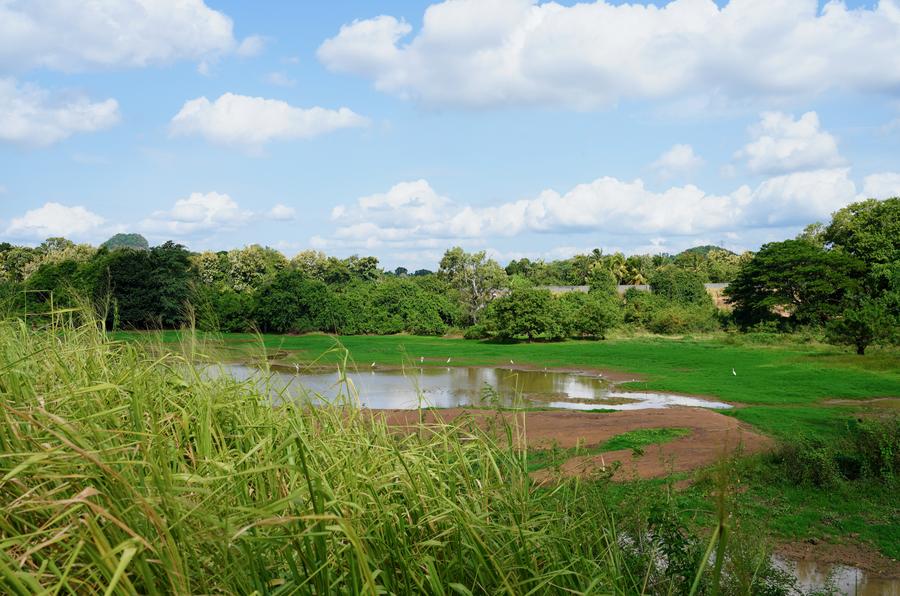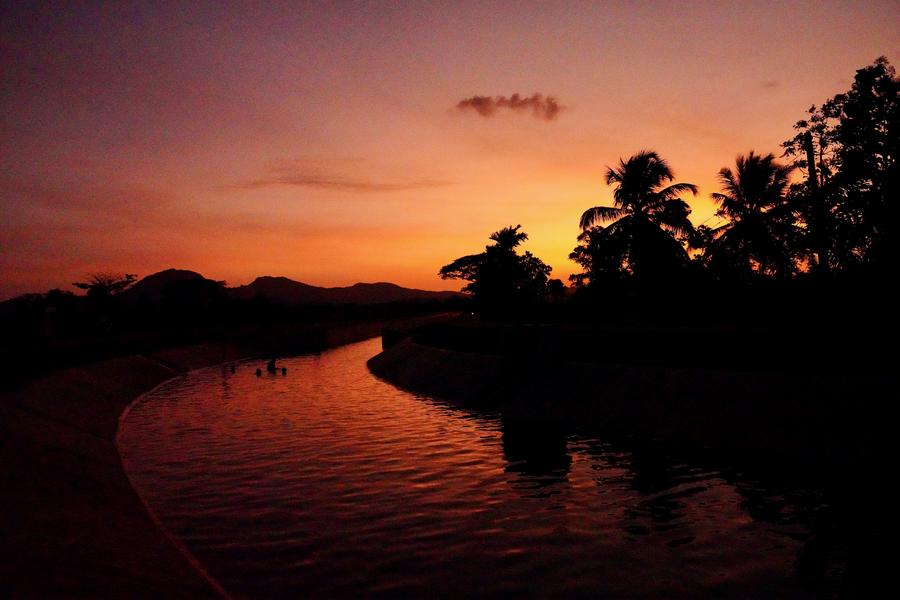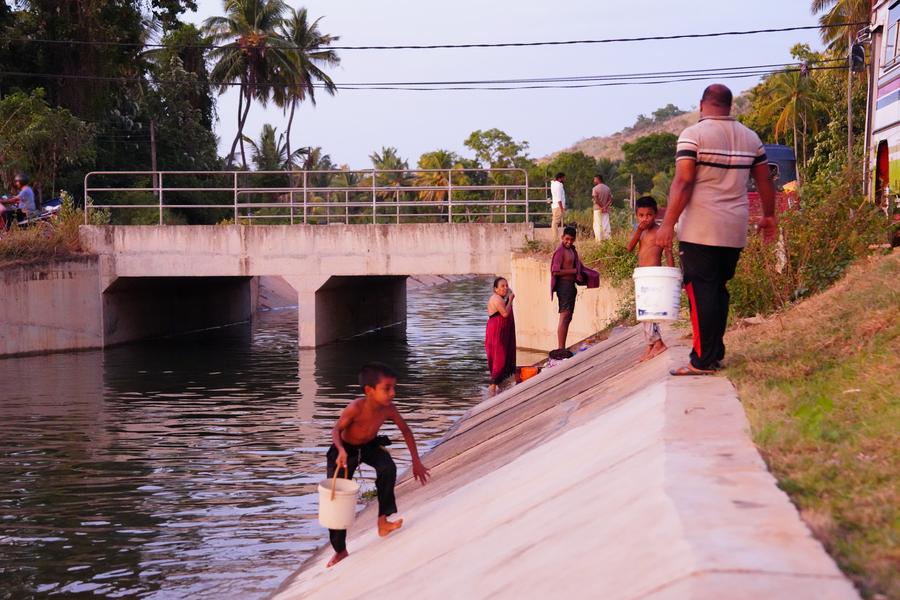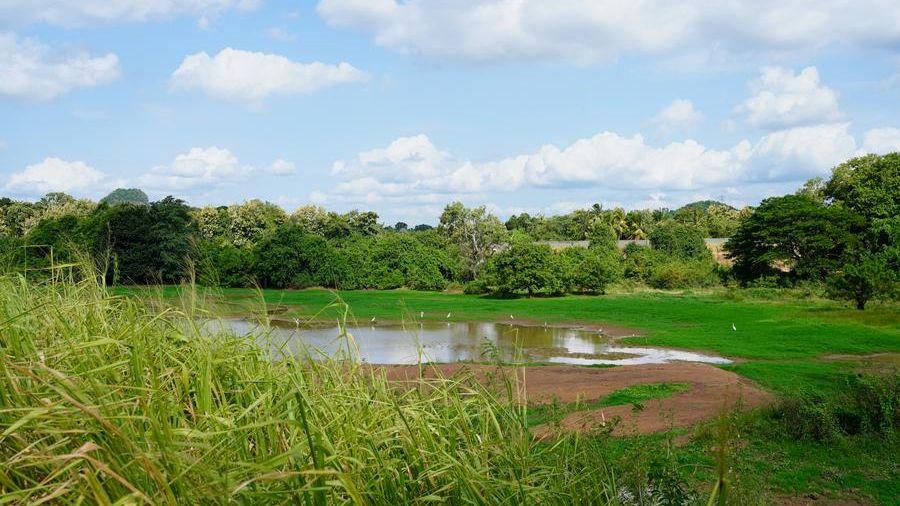Photo shows a dried riverbed during a dry season in Galewela, central Sri Lanka, on Aug. 9, 2024. (Xinhua/ Wu Yue)
"This canal benefits the town's agricultural production and also brings joy to our lives," a Sri Lankan resident says.
COLOMBO, Aug. 28 (Xinhua) -- In August, the scorching midday sun bakes the land in the central region of Sri Lanka, and the once plentiful river in Galewela has shrunk into a few small shallow patches, with dozens of egrets wandering around in the puddles.
However, not far away, clear water is flowing through an open canal over four meters wide and two meters deep, continuously irrigating the farmland, which is North Central Province Canal Project (NCPCP) undertaken by China State Construction Engineering Corporation (CSCEC) Sri Lanka Branch.
To address severe droughts in certain areas, the Sri Lankan government devised the Mahaweli Water Security Investment Program, aiming to divert the abundant water resources of southwestern Sri Lanka to the relatively water-scarce central, northern and eastern regions, with NCPCP being a significant component.
Photo shows the North Central Province Canal Project undertaken by China State Construction Engineering Corporation Sri Lanka Branch in Galewela, central Sri Lanka, on Aug. 9, 2024. (Xinhua/ Wu Yue)
In May this year, the main part of the project was completed, covering 10 villages surrounding Galewela town and capable of irrigating nearly 400 hectares of farmland.
"In the past, we could only rely on deep well water to irrigate our fields during the dry season. With this canal built by China, our rice will be harvested twice a year instead of once, and we can even grow an additional season of vegetables," said Kulasekara, a 58-year-old villager from Aluthwewa, Galewela.
Building the canal was not a smooth sail. Since construction began at the end of 2018, the project has faced challenges. Project Manager Guo Bingkui recalled that, due to the mainline of the canal passing through residential areas with much infrastructure, the construction process was fraught with difficulties.
"There was a section of the canal near a school and a mosque, so we had to find suitable times for construction, minimize vibrations, and reduce noise to avoid disrupting the school's and mosque's regular activities," Guo said.
Local residents play or wash clothes near the China-built canal in Galewela, central Sri Lanka, on Aug. 9, 2024. (Xinhua/ Wu Yue)
Liu Bingquan, deputy general manager of CSCEC Sri Lanka Branch, said that the project has consistently integrated construction with social responsibilities, providing over 600 local jobs and implementing the platform of the Luban workshop to train more than 80 local technical workers.
The sincerity and respect from the Chinese side have earned the trust of the locals.
"After the Chinese complete the construction, they restore and green the roads or do repairs for the villages, benefiting the villagers, so I'm willing to do my best to mobilize villagers from surrounding towns to support and cooperate with them," said P.W. Wijekoon, president of the farmers' association in Aluthwewa.
For many locals, the canal has also brought new joy to life.
In the evening, 24-year-old Mohammed Nurshad eagerly rushes to the canal to swim with friends after getting off work. "This canal benefits the town's agricultural production and also brings joy to our lives," he said.
Playing in the water, walking, washing...there's always plenty to do by the canal after the sunset.







 A single purchase
A single purchase









